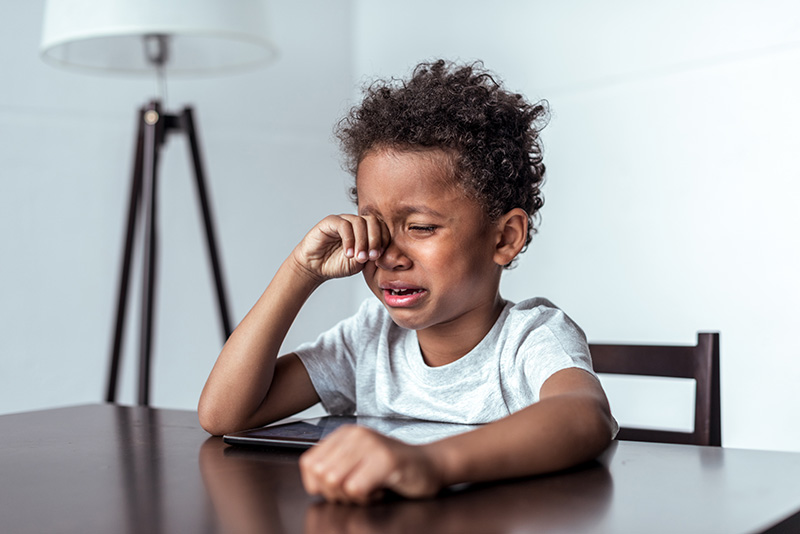
This is a letter written by an AILA Member and credit is provided at the end of the article.
During my week as a volunteer attorney in San Antonio, I visited with a mother and child at the Karnes family detention center who had been transferred from the Artesia detention center when it closed. The mother and her young son had already been detained for seven months, and I was helping to prepare them for their merits hearing. Their case was compelling and harrowing, like many of the mothers and children detained in these family detention centers. The mother had suffered horrendous sexual, physical, and emotional abuse as a child, suffered domestic violence as an adult, and then finally fled for her life and the life of her child when the gangs threatened to kill her and her son. Sadly, it’s a story shared by many of the women detained in Dilley and Karnes, and those who were detained in Artesia. Sadder still, it’s a story that this woman has had to repeat over and over again while locked up in detention – to the Border Patrol officers when she was crossed into the United States; to the asylum office during her interview; to a multitude of volunteer advocates trying to help her with her case; to the various immigration judges who have presided over her case as jurisdiction changed from Immigration Courts in Virginia, Denver, and now San Antonio.
Those seven months in detention, the uncertainty of her fate and that of her child, and their declining mental and physical health, weighed heavily on this young mother. The first thing she said to me when I met her was, “Are you new?” She was tired of telling her story. She was tired of reliving her pain. She was tired of being detained and not knowing when she would be released and if she would be deported to face death at the hands of the gangs who have taken over much of her country.
But what struck me the most was this woman’s son. Only a few years old and having witnessed a violent murder on the streets of his town, he was already severely traumatized before his mother brought him to the United States. His mother said that he would wake up in the middle of the night screaming, “There’s blood everywhere! They’re going to kill us!” When I began interviewing the mother in one of the attorney visit rooms in the detention center to practice her testimony for her hearing, her son was there with us. Just as he would have been during countless other meetings where this mother had to explain everything that she and her son had been through at home that caused them to seek asylum here. As soon as I started asking the mother about the sexual abuse she experienced as a child, her son curled up on the floor crying with his hands over his ears, sobbing, “Mommy no, mommy no.” All I could do was send her son out of the room to wait outside by himself. There was no other choice—prepping the mother for their hearing was the only way to save their lives. But every day in detention, this child suffered. He suffered from being in various detention centers that looked and functioned like prisons. He suffered from diarrhea and had lost significant weight due to bad food, and at Karnes, bad water. He never got psychological counseling or treatment to help him recover from witnessing brutality at such a young age. And he suffered from reliving all of that trauma and hearing about his mother’s trauma over and over and over again.
On my flight home from San Antonio, there was a medical emergency with one of the passengers seated two rows in front of me. I watched as passengers seated nearby stood up in panic to try ring the call button and wave down one of the flight attendants. A small boy was having a seizure in his parents’ arms. A flight attendant got on the loud speaker and called out for any medical personnel on board to come and assist. A dozen people rushed over, identifying themselves as doctors and nurses. The isles were cleared, drink carts were tucked away, and the passengers were asked for their patience and understanding as all attention focused on this child. Passengers nearby listened and watched intently. One woman in the row next to me even offered her own anti-seizure medicine to help. A flight attendant stood by and handed an oxygen tank and box of medical supplies to the doctor who had taken charge. She asked the doctor in a hushed voice if we needed to land the plane to get the child emergency medical attention. The panic subsided as the doctor counseling the parents determined that it was a febrile seizure, and he gave the child medicine to bring his fever down. The doctor stayed with the parents until the child seemed better, and we continued our flight home, everyone safe and sound.
And I thought about that boy in the detention center, crying alone on the floor with his hands over his ears to try and block out the pain, to stop the nightmare that he couldn’t escape. No one came running. There was no one to call for help.
Written by Eileen Sterlock, AILA Member and Family Detention Volunteer
If you are an AILA member who wants to volunteer at a family detention center, please go to the Family Detention Pro Bono Project page or feel free to contact Maheen Taqui at [email protected] – we could really use your help.
To watch videos of the volunteers at Artesia and elsewhere sharing their experiences, go to this playliston AILA National’s YouTube page. To see all the blog posts about this issue select Family Detention as the category on the right side of this page.
